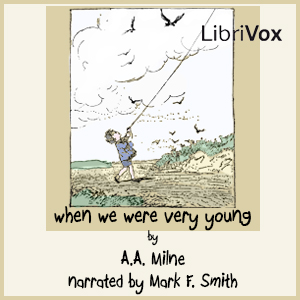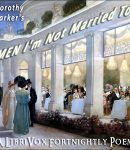
Short Poetry Collection 207
This is a collection of 70 poems read in English by LibriVox volunteers for August 2020. [chương_files]







This is a collection of 70 poems read in English by LibriVox volunteers for August 2020. [chương_files]

This is a collection of poems by Madison Cawein. This volume includes some of the magnificent nature descriptions that Cawein is famous for, and can evoke many different emotions with the reader and listener. – Summary by Carolin [chương_files]

There should be a bit of poetry in every day, and John Kendrick Bangs wrote a fitting poem for each day in the year. In 1920, a book was published with one of Bangs’ poems for each day. This project covers the month of November. – Summary by Carolin [chương_files]

Danske Dandridge was a Danish-born American poet, who is considered one of the major poets from West Virginia. In this volume, 36 of her poems are collected. The poems often read a lot like small fairy tales, and speak of nature, spirits, and emotions. – Summary by Carolin [chương_files]

Here is a sweet little poem to touch your heart and share with your best friends. The words are heartfelt, simple and trip off the tongue in sing-song fashion. The challenge becomes, as my English teacher and the poetry pundits oft complain of, how to read it without that sing-song pattern becoming monotonous. Let’s see how our Librivoxers do. – Summary by Michele Fry [chương_files]

There should be a bit of poetry in every day, and John Kendrick Bangs wrote a fitting poem for each day in the year. In 1920, a book was published with one of Bangs’ poems for each day. This project covers the month of December. – Summary by Carolin [chương_files]
On 15th June 1215 the Magna Carta was sealed under oath by King John at Runnymede, on the bank of the River Thames near Windsor, England. 2015 is the 800th anniversary of this charter, which led eventually to the rule of constitutional law in England and beyond. This book of essays on various aspects of the Charter was written by distinguished academics for the Royal Historical Society to commemorate the 700th anniversary of Magna Carta. N. B. The readers in this project are not scholars of mediaeval Latin or French. Where there are passages or phrases of Latin and Old French, we have endeavoured to make them clear, but make no claim to authentic pronunciation. [chương_files]

Thomas Carew (pronounced “Carey”) (1595 – 1640) was one of the Cavalier poets, a group associated with the unfortunate King Charles I, who was a notable connoisseur of poetry. Other poets in this school included Robert Herrick, Richard Lovelace. John Suckling and Ben Jonson. Carew’s verse generally eschews epic and grandiose subjects, and focuses on more intimate and profane matters. In the words of Edmund Gosse: “Carew’s poems, at their best, are brilliant lyrics of the purely sensuous order.” – Summary by Algy Pug [chương_files]

A saucy little poem commenting upon all men that Ms. Parker didn’t marry, perhaps implying (it’s a bit ambiguous) that upon marrying, the husband becomes far more special than all the other men in the world. It’s sort of the same theme embodied in Saint-Exupéry’s The Little Prince, who was saddened to discover that his rose was like any other rose, except when he further realized that his rose depended upon him alone for her care, and was the only rose that belonged to him. ~ Summary by Michele Fry [chương_files]

Fanny Hill: Memoirs of a Woman of Pleasure (1749) was the first widely-read English novel in the genre “Erotica.” It was written by John Cleland as he was serving hard time at a debtor’s prison in London. Over the centuries, the novel has been repeatedly banned by authorities, assuring its preeminent role in the history of the ongoing struggle against censorship of free expression. Until Fanny Hill, previous heroines had conducted their amorous liaisons “off-stage.” Any erotic misadventures were described euphemistically. As women who had gone astray, they always repented, which made even their most outrageous dalliances somehow suitable for a moralistic readership. The protagonist of Fanny Hill, however, never repented a single moment of her sexual exploits … quite the contrary! And with Fanny, the devil is in the details, realistically described. (Summary by Denny Mike) [chương_files]
Copyright © 2024 | FreeAudible